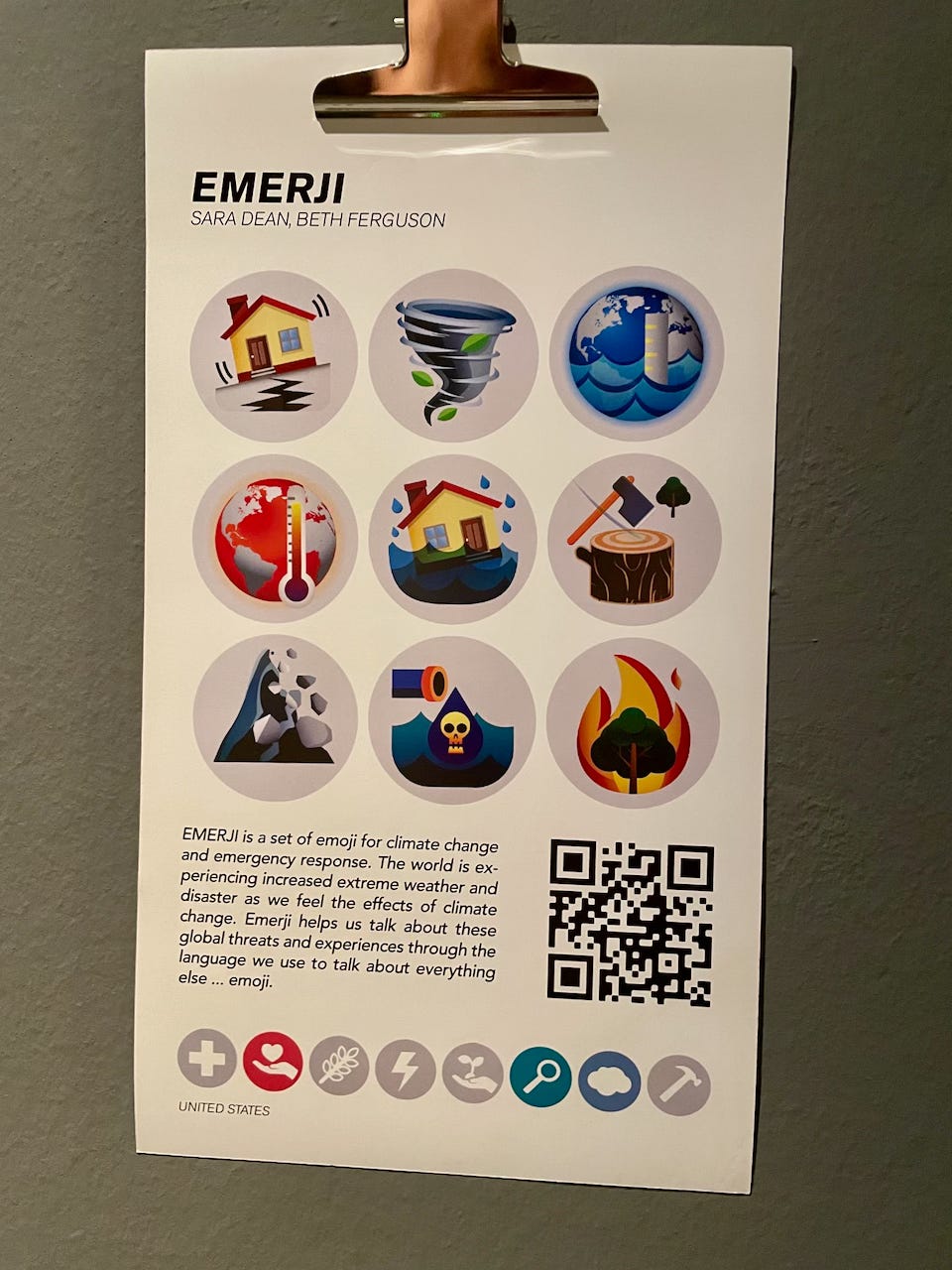The upcoming innovations that will let us keep flying over the hellscapes of environmental disaster
A feverish rant about techno-solutionism

I was unwell for a few days, hence a short — and perhaps slightly feverish — post today. -Aki
In my day job, I follow technology trends. I used to do this in a more systematic manner but nowadays, the activity centres on the end-of-the-year reports from various consultancies, think tanks, futures organisations, etc. One such summary arrived in my inbox just the other day — the Future Today Institute’s (FTI) Annual Letter, where they ask “Which Technology Will Most Revolutionize Our Future?”
I have followed the organisation for years, enjoying their slick visual reports and adapting their frameworks to some of my work. Perhaps it is a sign of how my attention has shifted that I would feel the need to unpick and question some of their work. In the annual letter, they outline “10 Big Themes for 2025”. I want to quote theme number seven in full:
Extreme weather and climate events will catalyze tech innovation. In 2025, the escalating effects of climate change will act as a powerful catalyst for tech innovation – and commercialization – driving the adoption of solutions that had been held up by cost and market demand. Rising sea levels and extreme weather events will create an urgent need for resilient infrastructure, leading to the wider use of technologies like CarbonCure's concrete additives that reduce carbon emissions during production. We already have a solution for water scarcity: desalination. Making clean water more accessible will become a priority, and new research from MIT proves that it's possible to deploy solar-powered desalination systems that don't require extra batteries. Pilots rely on GPS to navigate their routes, but atmospheric conditions and signal-jamming can prevent an aircraft's GPS receiver from locking onto satellite signals. An alternative is being developed in Australia, which uses a downward-facing neuromorphic camera to read the terrain below. There are new distress sensors for plants in the works, along with synthetic biology-inspired seed coatings and engineered microbes that help decrease carbon emissions.
My instant reaction to this was that the claim about the catalysing impact is preposterous. FTI does not bother to provide evidence. Well, they appear to do so by, later in the letter, elaborating on the “signals behind the 10 big themes”. This is a section that is meant to connect the dots from various indirect developments, the signals, to the big themes they have identified.
However, there is not a single mention of carbon emissions in the signals, and the ones about climate — U.S. climate policy uncertainty, global climate action concerns, “transatlantic climate cooperation at crossroads” — are signals that seem to give no hope whatsoever for some kind of cataclysm of tech opportunities and “market demand”. Rather the opposite: who thinks there is anything ‘uncertain’ about the direction of the Trump administration’s climate policies, for example?
Never underestimate the blindness of techno-solutionism
Other signals FTI introduces are developments like “new sources of heat. Some apartments in San Diego will be heated using excess heat from nearby data centers”. So, clutching at straws by trying to salvage something from the increasing data centre emissions. I guess that is a coping strategy that, e.g., the Nordic countries have already adopted, but only in the face of emissions that are seemingly deterministic and, you know, just something we need to live with because they fuel AI, among the other arms of the Machine.
Furthermore, in the full quote above, I don’t understand how the GPS navigation issue for aeroplane pilots is related to an environmental problem? (”Pilots rely on GPS to navigate their routes, but atmospheric conditions and signal-jamming can prevent an aircraft's GPS receiver from locking onto satellite signals.”)
Unless this implies that the new camera technology mentioned enables us to continue flying as much as we like, regardless of the inconvenient “atmospheric conditions”…I wonder which transport modes contributed to those?
Maybe the context is meant be about rescuing flood victims, or similar? Nevertheless, what comes up for me is a scenario of flying through the hellscape of environmental disaster, a bit like Dr Strangelove riding the A-bomb. Not very planet-centric.
The Machine rhetoric: bet everything to keep everything
To conclude, what leads one to believe from these ‘signals’ that “the escalating effects of climate change will act as a powerful catalyst for tech innovation and commercialization”?
The root of the issue in the techno-futurist rhetoric is in what is not being said. The root problem is the unwavering belief that layering more technology over nature will ‘fix’ things. That technology is a solution, a word used two times in the above quote. There is no doubt that solar-powered desalination systems, and other similar reconstructive innovations, are needed and useful, but they do not contribute to solving climate change — they won’t take us back; they help us cope with the predicament.
And even if the innovation catalyst would happen, whom would it benefit? The ones in the less developed parts of the world (in Western terms) who already suffer the most from the consequences of centuries-long rampant exploitation of nature? I hope so, because the climate disaster is not equally distributed, nor has technology ever been.
Thank you for reading.
With love and kindness,
Aki






